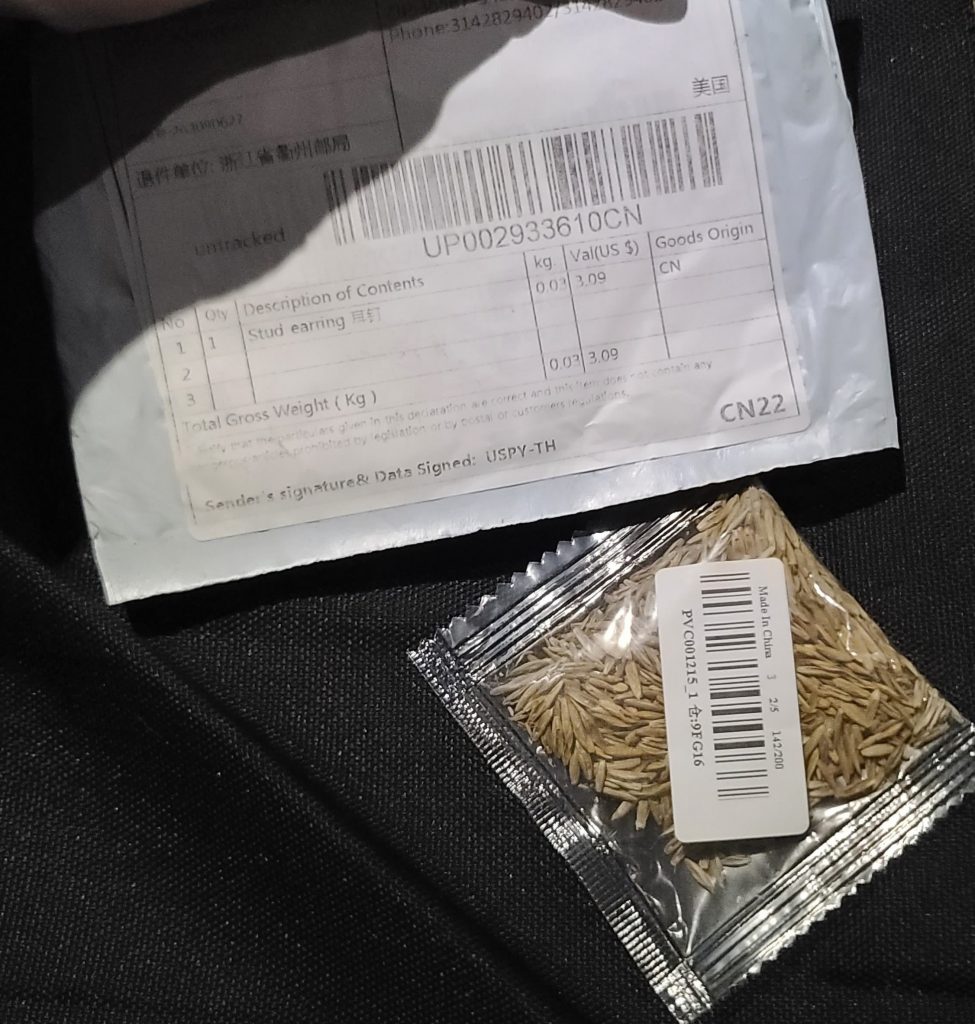
The Florida Department of Agriculture and Consumers Services (FDACS) has an updated website to help the state’s residents know how to proceed if they receive unsolicited seeds in the mail. Those who do receive seeds, please click here.
The Florida Department of Agriculture and Consumer Services(FDACS) is warning Floridians about unsolicited packages of seeds received through the mail. The seed packets may arrive unexpectedly in packages bearing Chinese characters, may bear the name China Post, and may be labeled as jewelry. They have been reported in multiple states.
Brushing Scam
The USDA’s Animal and Plant Health Inspection Service (APHIS), the lead regulatory body on this matter, issued guidance. The USDA believes the seeds to be part of a “brushing” scam, where unsolicited items are sent in order to post false customer reviews and boost online sales. Upon receiving seed packages from recipients, the USDA will test the contents to determine if a risk is posed to agriculture or the environment.
The introduction of plant seeds into the United States is tightly regulated by the USDA. Seeds of unknown origin may constitute agricultural smuggling; may be invasive; may introduce pathogens, toxins or plant and animal diseases; may pose a risk of foodborne illness; and may pose a threat to plant, animal and human health. FDACS is continuing to work closely to receive additional guidance from the USDA and APHIS, in consultation with U.S. Customs and Border Protection.
Report Immediately
“Anyone receiving these suspicious seed packets should not plant them, but should report it to our department immediately, so that our inspectors can safely collect them for analysis,” said Florida Agriculture Commissioner Nikki Fried.
Here’s what to do if you receive an unsolicited seed package from another country:
• Do not open the seed packet and avoid opening outer packaging or mailing materials, if possible.
• Place the seed packet and mailing materials into a sealable plastic bag. This is important to determine the origin of the seeds.
• Do not plant the seeds or discard them in trash that will be landfilled.
Again, if you receive these seeds, please click here to find out how to proceed.
This isn’t the first time in 2020 that Florida agriculture has been concerned about shipments of agricultural products from China. USDA’s APHIS on April 14 authorized the importation of five types of commercially produced citrus from China. Read about the official Florida opposition to that action.
Source: Florida Department of Agriculture and Consumer Services









